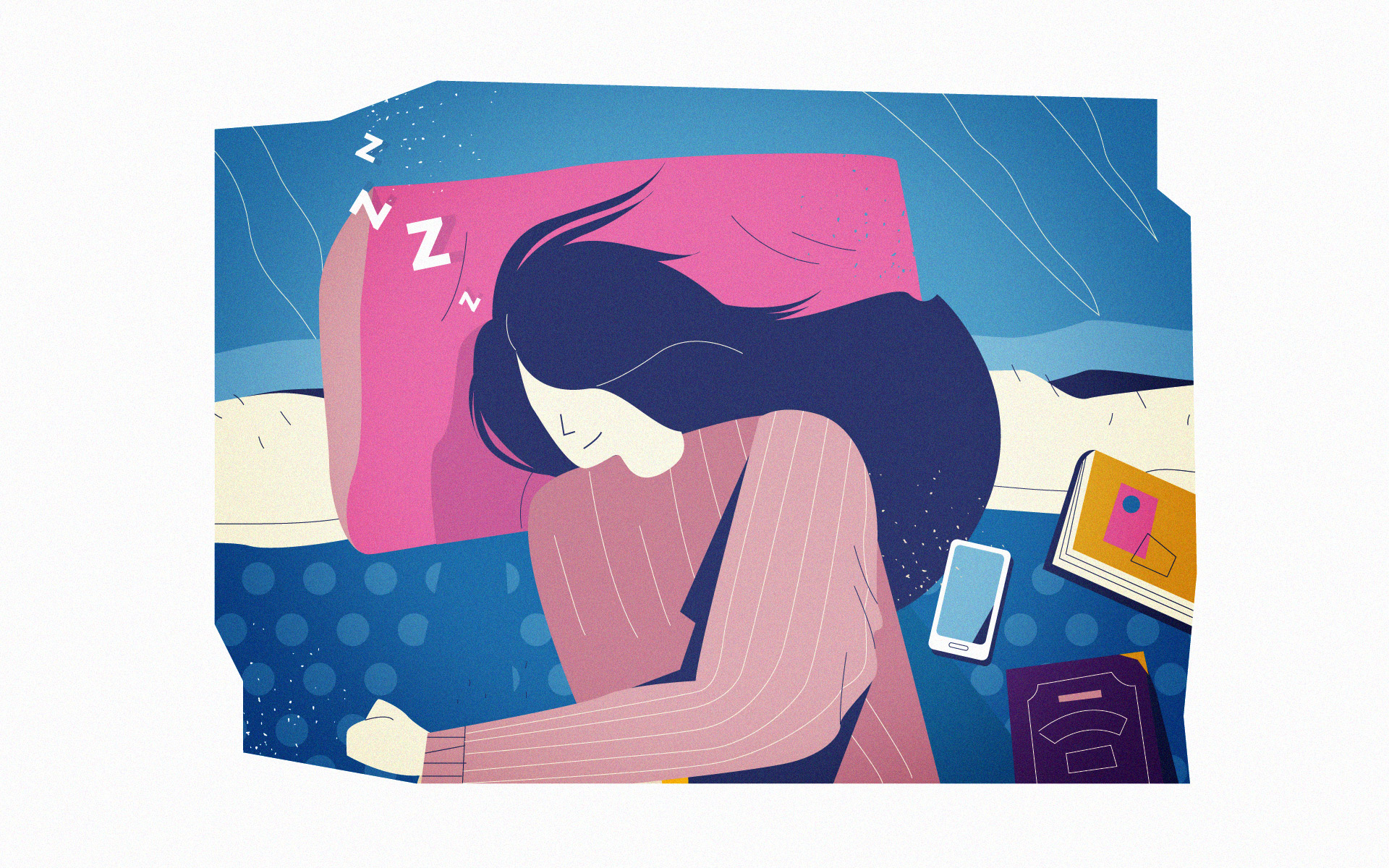A good night’s sleep can reduce your stress levels, improve your health and change your life. So how can you get more shuteye?
You’ve done it. We’ve all done it. Whether it’s pulling an all-nighter to meet an impossible deadline, staying up late to watch a midweek movie or taking the night shift to earn some extra cash, we’ve all deprived ourselves of a good night’s sleep. It may not seem like a big deal (especially not after your fourth espresso in the morning), but those missed hours of rest could have a huge impact on your health and happiness.
A 2020 study by researchers at Sweden’s Uppsala University found that when young, healthy men were deprived of just one night of sleep, they had higher levels of tau (a biomarker for Alzheimer’s disease) in their blood than when they had a full, uninterrupted night of rest.
“Many of us experience sleep deprivation at some point in our lives due to jet lag, pulling an all-nighter to complete a project, or because of shift work, working overnights or inconsistent hours,” said study author Jonathan Cedernaes. “Our exploratory study shows that even in young, healthy individuals, missing one night of sleep results in a slight increase in the level of tau in blood. This suggests that over time, similar types of sleep disruption could potentially have detrimental effects.”
But that’s not all, folks. A 2019 study by the University of California, Berkeley, found that while a full night of sleep can stabilize your emotions, a sleepless night can trigger up to a 30% rise in anxiety levels. “Our study strongly suggests that insufficient sleep amplifies levels of anxiety and, conversely, that deep sleep helps reduce such stress,” study lead Eti Ben Simon said. “Without sleep, it’s almost as if the brain is too heavy on the emotional accelerator pedal, without enough brake.”
A knock-on effect
Poor sleep is linked to dozens of physical and mental health problems. The Sports Science Institute of South Africa lists just a handful: obesity, high blood pressure and cardiovascular disease, insulin resistance and type-2 diabetes mellitus, mental health disorders, reduced productivity, irritability… and so it goes.
A 2019University of Stellenbosch Business School study underlines the problem, noting that just one South African medical aid scheme could spent about R22-billion a year treating the life-threatening diseases linked to a lack of sleep. “Lack of sleep is not only related to workplace issues such as absenteeism, lack of productivity, poor work performance, and accidents – which have a direct cost impact on a business – but insufficient sleep has been directly linked with seven of the 15 leading causes of death,” said study author Charles King.
King warned that an average of less than seven hours of sleep a night increases the risk of developing major depression by 22%, coronary artery disease by 73%, type-2 diabetes by up to 18%, and the risk of developing colorectal cancer by 50%.
So, how can you change your sleep habits?
King recommends avoiding use of your mobile devices, not watching TV or working in bed, and not consuming nicotine, caffeinated drinks or any substance that would impair sleep quality. Regular exercise, meanwhile, can significantly improve the quality of your sleep.
The US Sleep Foundation backs this up, recommending exercise in the morning or afternoon, taking time (at least 30 minutes; preferably an hour) to downshift before bedtime, doing calming exercises (just five to 10 minutes of deep breathing or progressive muscle relaxation), or turning off your thoughts by writing down your concerns in the afternoon and putting them aside to address the next morning.
These may be small changes, but they could make an enormous difference to your mind and body. The science doesn’t lie: lack of sleep is a slow-burning killer, and you need to get a decent night’s rest if you want to perform well. It’s the best activity you can do to achieve the meaningful changes you’re seeking… even if it feels like doing nothing.

Leave a Reply